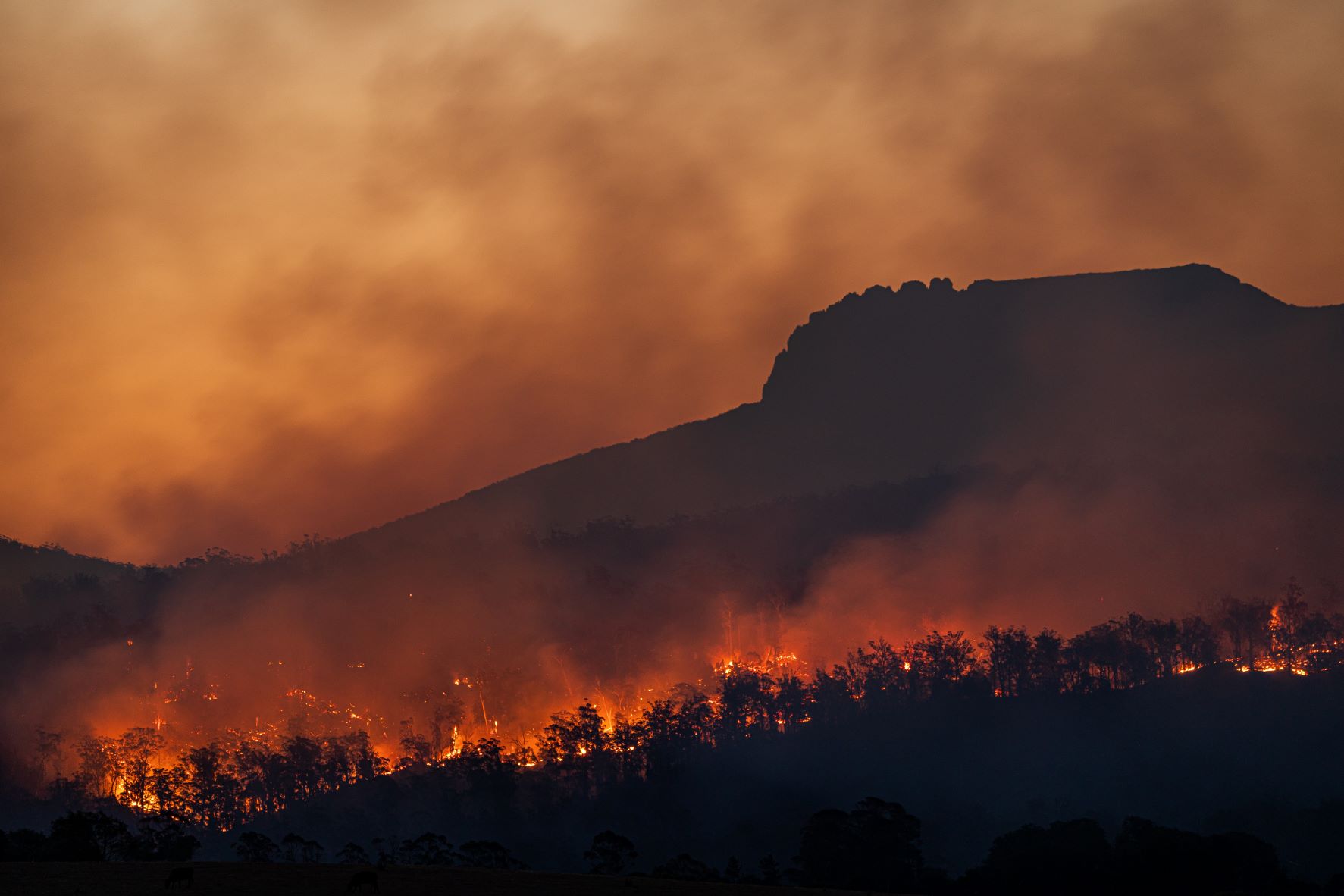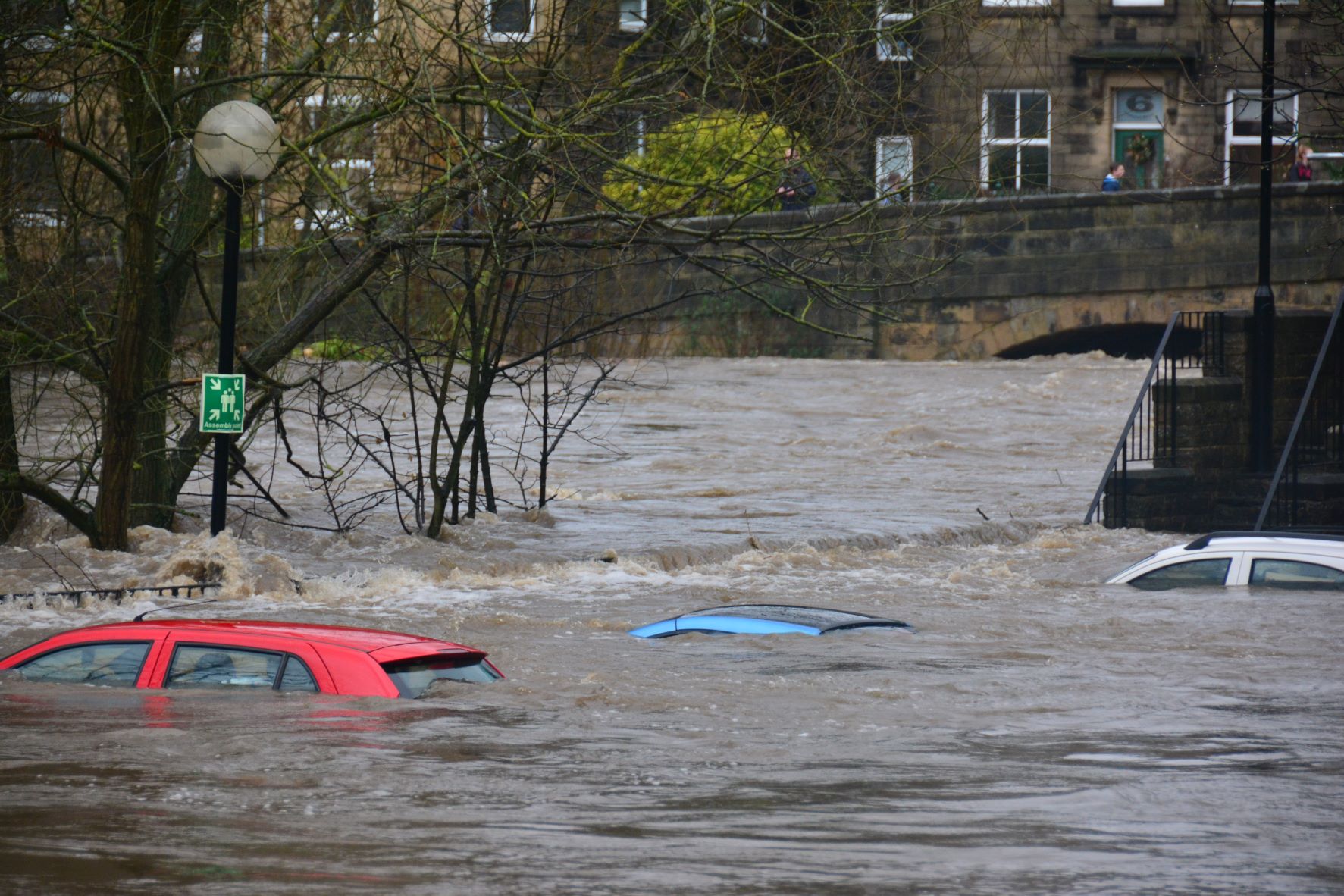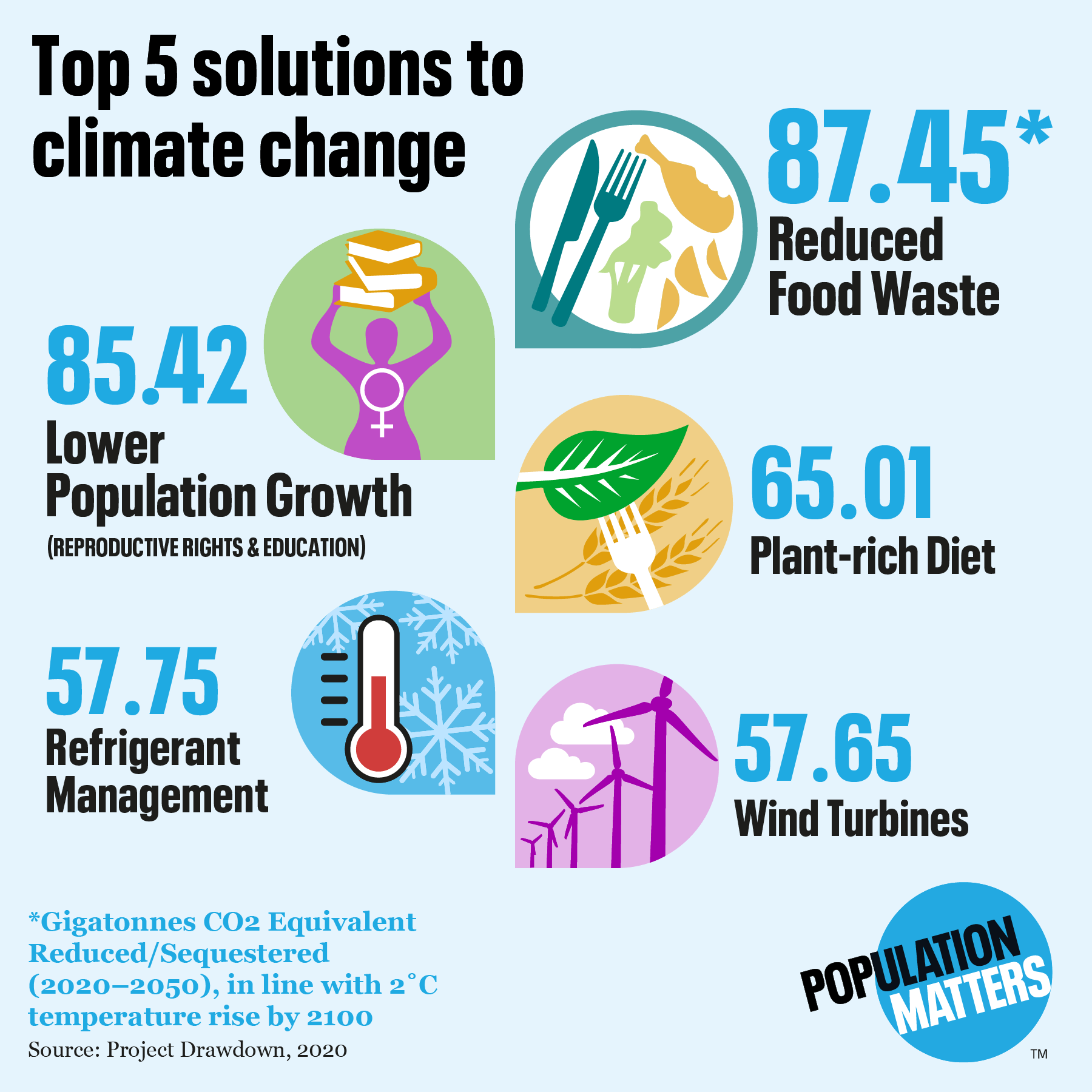
“Code red for humanity”: UN climate report
A major UN climate report was published last week, providing a dire warning about the worsening climate crisis. With the UN Secretary-General calling it a “code red for humanity”, the report highlights the undeniable human impact upon our planet and shows we must drastically cut emissions within the next few decades to have a chance of averting catastrophic warming.

The report focuses on the physical science basis of the climate crisis and is the first of six instalments of the sixth report by the Intergovernmental Panel on Climate Change (IPCC), the UN body that provides governments and policymakers with scientific assessments on climate change.
The human factor
This particular report does not reiterate the findings of other IPCC reports in recent years, which explicitly stated that population growth was one of the most important drivers of increases in CO2 emissions from fossil fuel combustion, and that potential high population growth was a key impediment to hitting the critical target of limiting global warming to 1.5°C. However, within its remit of reporting on the physical science basis of climate change, it does clearly state that blame for the climate crisis lies squarely with humans:
“It is unequivocal that human influence has warmed the atmosphere, ocean and land. Widespread and rapid changes in the atmosphere, ocean, cryosphere and biosphere have occurred.”
“Human-induced climate change is already affecting many weather and climate extremes in every region across the globe. Evidence of observed changes in extremes such as heatwaves, heavy precipitation, droughts, and tropical cyclones, and, in particular, their attribution to human influence, has strengthened since [the Fifth Assessment Report] AR5.”
The report highlights that each of the last four decades has been successively warmer than any decade that preceded it since 1850, manifesting in increased frequency and severity of catastrophic events, including the floods and wildfires that have been ravaging many parts of the world.

Drastic cuts required
As part of the Paris Agreement of 2015, every nation on the planet pledged to limit global warning to below 2°C (3.6 °F) and ideally 1.5°C (2.7°F). The scientists found that we will exceed 1.5°C by 2040 under all emissions scenarios. The critical 2°C threshold will also be breached this century unless huge cuts are implemented. Emissions must reduce by half over the next decade to 2030 and reach net-zero – the point at which a balance is achieved between the amount of emissions produced and the amount of gases removed from the atmosphere – by 2050.
While the immediate priority should be the urgent implementation of solutions which will be maximally effective over the coming decade, Population Matters also urges acknowledgement of the fact that slowing population growth through ethical, voluntary means will help to reduce emissions, protect carbon sinks and maximise the effectiveness of all other solutions over the medium to longer term.
Empowering, powerful solutions
The value of population action to address climate change has been quantified by the world-leading study of available climate change solutions, Project Drawdown. In its words, “as we consider the future of climate solutions, it matters how many people will be eating, moving, plugging in, building, buying, using, wasting, and all the rest. Population interacts with the primary drivers of emissions: production and consumption, largely fossil-fuelled’’.
Last year, in an analysis of 80 practical policy options for reducing greenhouse gas emissions, ranging from plant-based diets to refrigerant management, Project Drawdown found that, even when factoring in the far lower climate emissions of countries in the Global South, empowering women and girls through universal access to education and safe, modern family planning would save 85Gt of emissions by 2050, making it the second most effective solution in limiting warming to 2°C and fifth most effective in limiting warming to 1.5°C.

This was echoed by the updated World Scientists’ Warning of a Climate Emergency, published on 28 July this year, which reiterated the call made in the 2019 Warning, to stabilise and gradually reduce our population “by providing voluntary family planning and supporting education and rights for all girls and young women, which has been proven to lower fertility rates”.
All eyes on Glasgow
In November this year in Glasgow, the UK Government will host the most important climate change conference since the Paris Agreement was signed in 2015. Known as COP26, the conference must end with a deal that tackles the climate crisis we are facing head-on.
Population Matters is lobbying the UK Government and COP26 officials to ensure that voluntary, human rights-based solutions, such as access to family planning and education, are given due weight and consideration at COP26 and in preparations for it. At COP26, Population Matters would specifically like to see these solutions highlighted during the discussions on gender on 9 November, and included in the final agreement.
Another key issue around the empowerment of women and girls is finance. Population Matters is deeply concerned that the Government’s recent cuts to Overseas Development Assistance, and particularly to funding for family planning through the United Nations Population Fund (UNFPA), will not only cause grave harm to millions of the most vulnerable woman and girls around the world, but will also harm the planet, leading to greater greenhouse gas emissions, thus exacerbating the climate crisis which is impacting the poorest the most.
As one of the main goals of COP26 is to mobilise finance to tackle the climate crisis, Population Matters is urging the UK Government to include the need for financing for actions to empower women and girls on the agenda at COP26 and in the final agreement.



